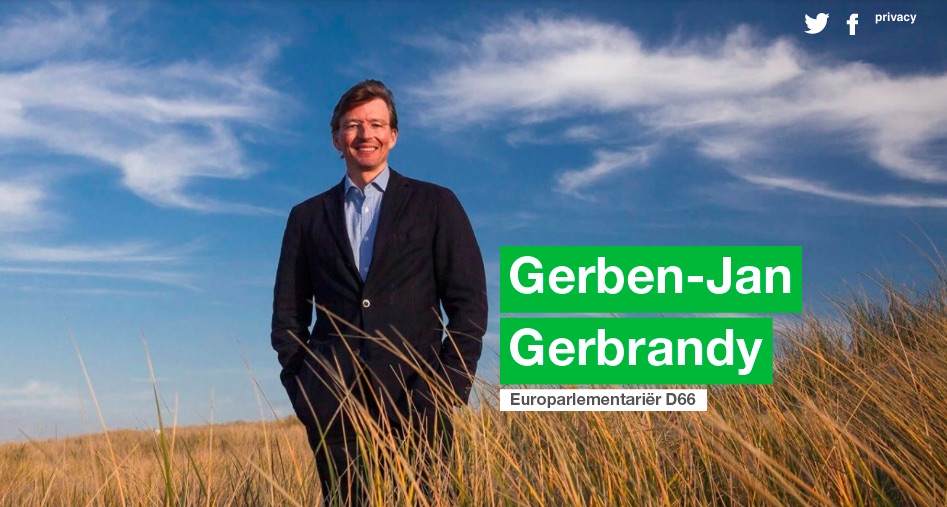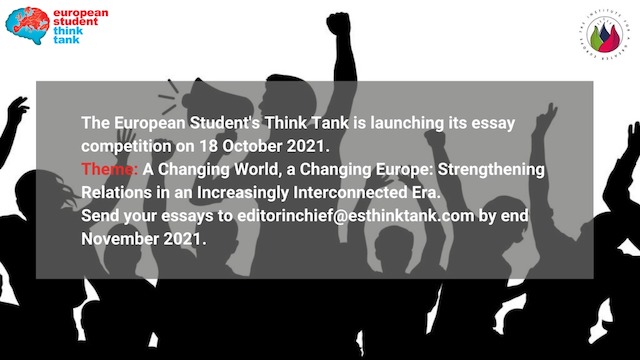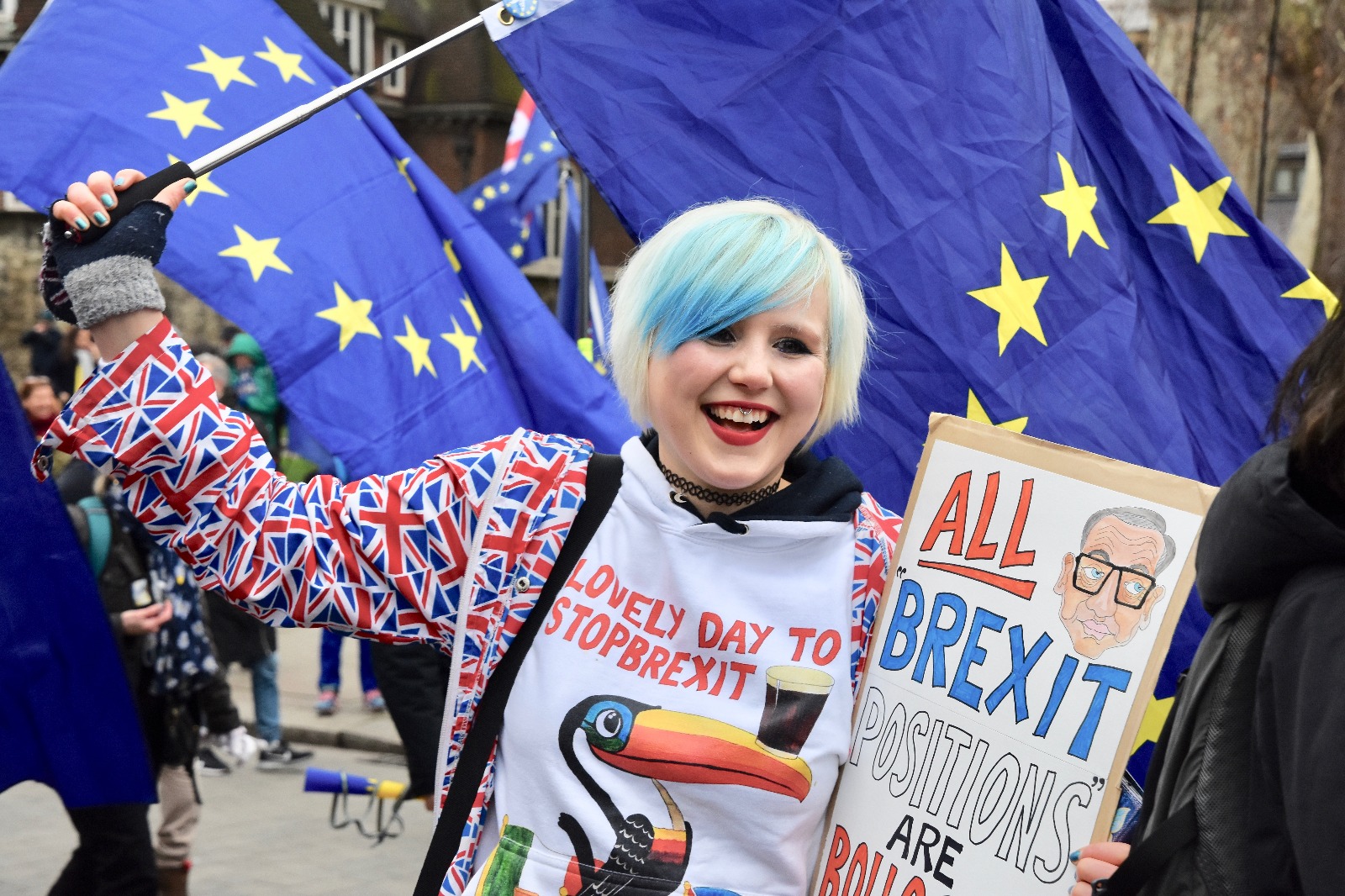

The EST was lucky to interview European Diplomat Gerben-Jan Gerbrandy. The Dutch politician is a member of the Alliance of Liberals and Democrats in the European Parliament. Having graduated in Government, Politics and Business and now an EP Diplomat, Gerbrandy discusses governance at the heart of the EU with the EST.
Q – How do you believe the European Parliament attempts to involve the young Europeans and students in their activities?
A – The EP tries to involve young people more and more learn about how the Parliament works and what they can achieve through it. Therefore the Parliament organizes the European Youth Event, in which around 7000 young people get the chance to experience what it’s like to be a Member of the Parliament (MEP) and to talk about important issues around young people.
Besides this program, schools or other institutions that involve young Europeans and students can ask to be sponsored by the EP. Those groups come to the EP and get a look inside of the life of a MEP, while the most of their costs are being covered.
On the policy side, the EP has made youth unemployment a priority: a Youth Guarantee Fund was created in the European budget to help young people to get employed. A number of MEPs are active in this field, although there should be more doing that.
Q – Do you believe their approach is successful? Why (not)?
A – The EP also has offices in each member state. They organise a lot of activities for young people, quite successfully. Nonetheless, it is also important that young people learn about the EU at an early stage in their education.
Q – On what points could the EP do more to achieve getting more attention from (young) Europeans?
A – A lot of Europeans think the EP is a massive organisation that is incomprehensible, but this is not true. You can follow debates, votes and our activities to the EP website, and through Facebook and Twitter. But yes, often the language is complex. We might need to reserve a special place on our website for young Europeans where things are explained in a more attractive way to young people. That would be very helpful I think.
Q – What is your opinion on the current use of social media by the EP?
A – The use of social media by the EP is pretty good at the moment. The EP has its own Facebook page where it explains a lot about the sessions that are held and the topics that are debated on in the plenary sessions. I think this is a really good way to inform the younger Europeans and get them more involved in the process.
Next to the EP page, some of the MEPs have their own Twitter or Facebook, like me. It really depends on the MEP, but on those private pages we talk about the topics that we are concerned about and what we think about the decisions that we take in the EP.
Q – What role does your own use of social media play in your day to day activities?
A – When I use social media, I post things on Twitter or Facebook. I write about interesting articles and reports that I read, but I also retweet news items where I give my opinion on hot topics and I use it to put people on the spot. A good example of putting people on the spot is the fact that I asked the ministers in all 28 Member States what their opinion was in the Dieselgate scandal. Because of the fact that Twitter is public and fast, this gets a lot of attention of journalists and worried, interested citizens.
Q – Is there a lot of influence from the party or delegation to what you post on your personal social media channels?
In principle every member is free to post on social media whatever they want. But of course we as a party coordinate our standpoints. This happens especially when topics are politically sensitive, both here in Brussels and in The Hague. As the ALDE party we try as much as possible to speak with one voice, but this is not possible all the time. The members of the EP are chosen as individuals and all have their own political ideas. Therefore they can say what they want, but you have to carry the consequences if the political party doesn’t agree, whatever the consequences may be.
Q – What role does cooperation with other European institutions play in your day to day activities?
Our main partner institutions would be the Council and the European Commission. In the Council the governments of all member states come together, and almost all of the legislations in the EU are decided upon by the Council and the EP together. Negotiations take place between these two institutions. The Commission is the executive body of the EU and is therefore proposing most of the EU legislation, as well as carrying out its implementation and monitoring activities. This means that there is a lot of interaction and cooperation between the EP and the European Commission as well. Commissioners come to the EP to explain their proposals and to answer questions from the MEPs.
Q – Do you think the power balance between the EU institutions is right the way it is, or would you want to see changes made?
In my opinion the European Parliament should get a bigger role in the legislation process. We are the representatives that are elected by the European voters. Governments of the Member States block a lot of legislation within the Council. This makes the EU sometimes very slow, what is a shame if you think about the possibilities we have.
As D66 we also advocate for a directly elected President of the European Commission and the possibility for the EP to send individual Commissioners home.
Q – How do you believe the role of the European Parliament will change in the coming decade?
The EP is becoming increasingly the political arena for political European debates. Victor Orban came to the EP to debate his national policies. Hollande and Merkel came to our plenary for a debate on Europe. And David Cameron should do the same on with his demands for Europe. I expect this tendency to develop further. Therefore the EP will be much more in the spotlight of Europe.
Q – How do you believe the policy process of the European Union will change the coming decades?
I hope that we achieve a much more effective EU that tackles big challenges such as economic growth, climate change and migration. It seems that every time we need a crisis to realise we need to improve our cooperation. Look for example at the refugee crisis. We need closer cooperation and power at the EU level for these big challenges because we live in a very rapidly changing world. We can even have smaller institutions that deal with these big challenges, but in a more effective way that is transparent, democratic and visible for most Europeans. If we are able to solve these problems, for example with the euro, the support for the EU will increase.

 The European Union in Space: From exploration and innovation to security and autonomy
The European Union in Space: From exploration and innovation to security and autonomy  The Rise of the Right: The Threat Right-Wing Extremism Poses to Women and Feminist Efforts in Germany
The Rise of the Right: The Threat Right-Wing Extremism Poses to Women and Feminist Efforts in Germany  The silent shield – how special operations safeguard the global supply chain
The silent shield – how special operations safeguard the global supply chain  The Human Factor: How Personality and Psychology Drive Crises
The Human Factor: How Personality and Psychology Drive Crises 
